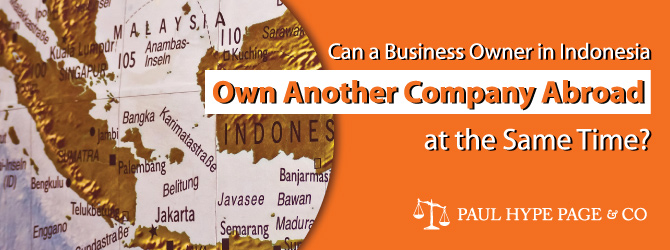The food and beverage (F&B) industry facilitates sales of food and drinks, both locally and for export. Countries’ economies cannot survive in the world today without an active and thriving F&B industry. Governments, therefore, take a close interest in this industry for the purposes of economic growth as well as regulation. Such has also been the case in Indonesia.
There, the Indonesian government has set up the National Agency of Drug and Food Control which oversees all activities which take place within the F&B industry. There is a need to prevent the sale of prohibited food substances as well as to regulate the business environment for both local and foreign F&B businesses alike.
Thus, the Indonesian F&B industry is full of regulations which have been put in place by the Indonesian government; however, all of these regulations are generally well-planned and necessary.
Current Condition of the F&B Industry in Indonesia
The restaurant business is one of the most lucrative industries in Indonesia. It rivals the manufacturing and agricultural industries for this position. In 2021, it contributed to approximately 38% of Indonesia’s Gross Domestic Product (GDP) under the non-oil and gas processing industry.
The management of restaurants in Indonesia is conducted by Indonesia’s Ministry of Culture and Tourism. This ministry outlines regulations which are used to govern the Indonesia food and drink market. Setting up a restaurant in Indonesia requires a business license along with other documents. The details of setting up a restaurant in Indonesia will be discussed in this article later.
Before diving into those pointers, here are some reasons why setting up a F&B company or restaurant in Indonesia might be a good option:
How to Start an F&B Company & Restaurant in Indonesia
Setting up a restaurant in Indonesia follows the same procedure as that of starting a business; however, the method of investment is different. In the restaurant business, a foreign investor may find it difficult to set up and begin operations without the support from a local partner.
For local business owners, setting up a restaurant requires that they register the business as a direct investment company, which may also be known as a limited liability company. This therefore shows that the process is similar that of registering a company in Indonesia.
The process is more complex for prospective restaurant owners who are foreigners since they are required to not only partner with local partners but also present a work permit and valid visa to prove their legal stay in the country. A foreign investor is required to set up a Perseroan Terbatas – Penanaman Modal Asing (PT PMA), which is a foreign-owned limited liability company. Indonesia’s company law states that a foreigner can own up to 51% of total shares in a PT PMA.
Alternatively, a foreign owner could appoint a local shareholder and oversee this shareholder. This would therefore allow the foreigner to have complete control of the restaurant.
An F&B business in Indonesia cannot begin its operations before receiving approval for the food products it intends to sell. The National Agency of Drug and Food Control is responsible for assessing the sources, quality, and usage for both raw materials and finished food products prior to presenting the F&B business in question with an ML number.
However, restaurant owners do not have to obtain licenses for ingredients which are to be used to make finished products which will subsequently be sold in restaurants. The restaurant owners must, however, obtain a license for the finished food products. The process of license approval takes a period ranging from about six months to one year in order for all compliance regulations to be completed; these regulations are to be performed on the premises of the location where the sales and distribution of food and beverage products will take place.
Licenses Related to Indonesian F&B Companies
Unlike other industries, the F&B industry in Indonesia demands that business owners own many business licenses before the company can be fully registered. There are many licensing requirements which have been imposed by the National Agency of Drug and Food Control. Some of the licenses which are required prior to registration of an F&B company in Indonesia include but are not restricted to are:
If you are seeking any assistance regarding licensing or any other compliance regulations of your company, we at Paul Hype Page & Co can be of assistance. We will work with you to ensure that all of your compliance-related requirements have been fulfilled. We will also help you contact any relevant government authorities in Indonesia, should you require their input.
Legal Requirements for Setting up a Restaurant in Indonesia
The most important legal requirement in Indonesia is that of company registration. An investor must follow the legal guidelines of company registration which include the following: providing a list of directors, naming of shareholders, and defining the nature of the company’s business. This process is overseen by government authorities that receive, verify, and approve applications for company registration.
Other than company registration, investors are also required to provide a building permit that ascertains that permission to expand, modify, or build a location for the restaurant has been granted. A restaurant owner should also provide a nuisance law permit that shows that the location of the business does not disrupt public peace and safety.
The investor must also be a registered taxpayer with proof of tax compliance prior to obtaining an operating license for the restaurant business.
The investor must also provide an environmental impact analysis. This analysis shows the effects of the restaurant’s operation on the environment. It should contain a waste disposal strategy and an evaluation of the toxic nature of the waste being produced by the restaurant.
Besides the preceding requirements, the restaurant owner needs to obtain a food safety and health certification from Indonesia’s Ministry of Health showing the safety of products being sold at the restaurant. The Ministry of Health also demands a health certification for every employee of the restaurant. This should prove that the restaurant’s staffs are in a position to safely handle food and drinks without running the risks of causing in infection.
Starting an F&B Company in Indonesia FAQs
The National Agency of Drug and Food Control oversees many different yet important matters to preserve the health and safety of everyone living in Indonesia today. Some of these matters include regulation and supervision of medicine, cosmetics, vaccines, and dietary supplements in Indonesia. It is also in charge of all issues related to food safety.
Approximately 87% of the Indonesian population today is Muslim. Thus, they will require assurance that the food which they are to consume is not in violation of their religious beliefs. This also means that an F&B business’s failure to obtain halal certification will cause them to be unable to sell products to the vast majority of Indonesians.





